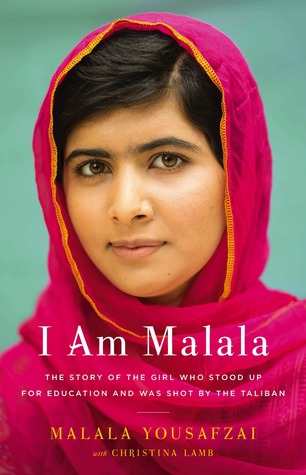Published : 2021 || Format : print || Location : Colombia ☆ ☆ ☆ ☆ ☆ What was it about the country that kept everyone hostage to its fantasy? The previous month, on its own soil, an American man went to his job at a plant and gunned down fourteen coworkers, and last spring alone there were four different school shootings. A nation at war with itself, yet people still spoke of it as some kind of paradise.. Thoughts : Infinite Country follows two characters - young Talia, who at the beginning of this book, escapes a girl’s reform school in North Colombia so that she can make her previously booked flight to the US. Before she can do that, she needs to travel many miles to reach her father and get her ticket to the rest of her family. As we follow Talia’s treacherous journey south, we learn about how she ended up in the reform school in the first place and why half her family resides in the US. Infinite Country tells the...
My mother always told me, "hide your face -- people are looking at you." I would reply, "it does not matter; I am also looking at them."
I am Malala was never on my radar. Part of it had to do with the fact that I had not heard of Malala until this book began making the waves in blogosphere. (Yes, I seem to be living under a rock. In my defense, I stopped reading the news about four years ago. I didn't have a desire to ruin my days after reading some particularly upsetting news.) The other reason was that I keep my memoir reading to a minimum, and I am never a fan of autobiographies that extoll the writer's great virtues. Luckily, Malala is one of the most matter-of-fact narrators I've come across. The only exclamations in her book are when she talks about having fun with her friends just like any regular schoolgirl should. There is no hint of arrogance or "I did a great thing therefore people worship me" attitude in it, and these made this book a seller.
If you, like me, had no idea who Malala is, this young Pakistani girl got shot by the Taliban in her own hometown because she was speaking out for education for girls. Talk about stuff that can get you killed in some places! Malala was 14 when this happened and the last 15-20% of the book follows this incident and her recovery afterwards. But it is the first 80% of the book that won me over. I cannot reiterate enough how much I loved Malala. She was just like any other girl I knew growing up. She had fun with her friends, she had opinions, and more than anything, she just wanted to be a regular every-girl who attended school without issues. Instead, the Taliban had different plans for her.
Her hometown in Swat was not a heavy Taliban area initially. There were boys and girls schools, and even some coed schools. But a certain Maulana Fazlullah was just beginning to slowly influence people with his religious and often misogynistic opinions. Over time, he began to condemn people who still let girls into school, while also publicly appreciating those girls and women who dropped off school. Malala continued attending.
Besides, her father was also an anti-Taliban activist. All he had ever wanted in life was to run a school where kids like Malala could attend. He encouraged Malala to be strong, though when the death threats started pouring in for him and Malala, he began to worry that he will regret his decision later. But Malala was becoming more renowned on her own accord. She was meeting government officials, writing a blog, and airing her opinions without fearing for her life. Her father was her role model and she had never seen him cower or hide in fear. So why should she?
Malala also gives a good history of her country, Pakistan, and its apparent friendliness with Afghanistan. I'm sure many people know that people in Pakistan also suffer from backwardness, thanks to an inefficient and ever-changing government and its physical and spiritual proximity to Afghanistan. But the latter gets in the news more, simply because the problems there are bigger in comparison to those in Pakistan. Malala is ready to criticize her country when something wrong is being done and also expresses embarrassment when negative attention falls on Pakistan, but her thoughts are nowhere near the disgusting or impractical ones that usually occupy the airwaves most of the time.
I purchased this book on Audible when I had to choose a book to complete a sale. Funnily, this is the book I listened to first, of the lot. The narrator, Archie Panjabi, did a great job narrating this story and made for a great voice in my car during the couple of weeks it took me to finish listening to this book. I am glad this book turned out to be informative (there is so much about Pakistan that I learned here - all interesting stuff too) and personable (Malala is certainly a charming person), but most importantly, this is a record of a little girl's triumphing over the Taliban, and that, in my opinion, is a great read anytime. On the other hand, books like these make me sad though, because for every well-known girl like Malala getting shot and saved, there must be countless other girls dying without a grave or newsprint to honor them.
This audiobook is from my personal library.
Armchair reading in Pakistan


Comments